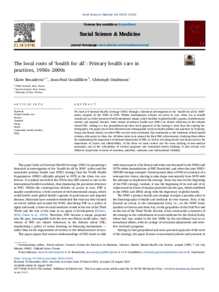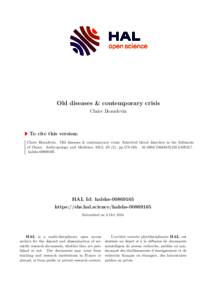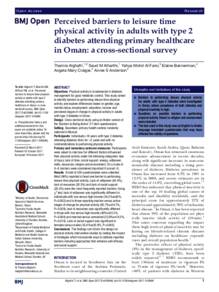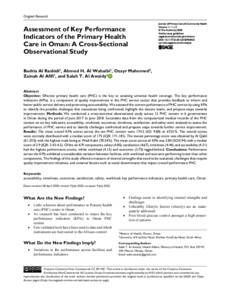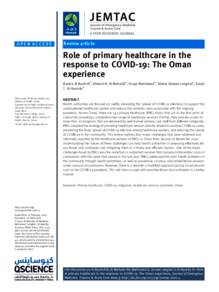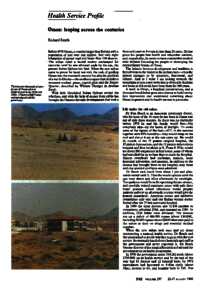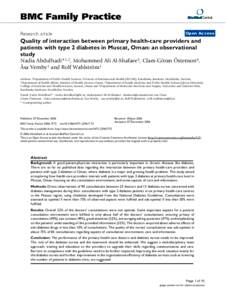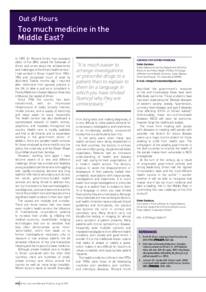وثيقة
The local roots of ‘health for all’ : primary health care in practices, 1950s–2000s.
المعرف
DOI: 10.1016/j.socscimed.2022.115321
المصدر
Social Science and Medicine. v. 319, 115321
المساهمون
Gaudillière, Jean-Paul., مؤلف
Gradmann, Christoph., مؤلف
الدولة
net
مكان النشر
Amsterdam
الناشر
Elsevier Ltd.
ميلادي
2023-02-01
اللغة
الأنجليزية
الموضوع
الملخص الإنجليزي
We look at Universal Health Coverage (UHC) through a historical investigation of the “health for all by 2000” policy adopted by the WHO in 1978. Within contemporary debates on access to care, Alma Ata is usually considered as a brief moment of well-intentioned utopia, which buckled to global health's agenda of performance metrics and targeted diseases. Such visions of primary health care (PHC) are shared references in the debates about UHC. Aiming at a less geopolitical and more local approach of the strategy's roots than the existing historiography, the paper draws from historical and ethnographic work on health policies and practices in Tanzania, Oman and Kerala (India), in which PHC was not only envisioned, but constructed as the backbone of local health systems, often prior to Alma Ata. All three states were praised for their PHC achievements. Studying them allows for emphasizing the importance of national trajectories in PHC, as well as revealing shared core issues such as the importance of access and affordability, of the focus on rural centers and the mass training of non-medical personnel, and of the articulation of vertical programs and horizontal system building. It also reveals very different trajectories in terms of duration, priorities, outcomes and international visibility.
ISSN
0277-9536
قالب العنصر
مقالات الدوريات

